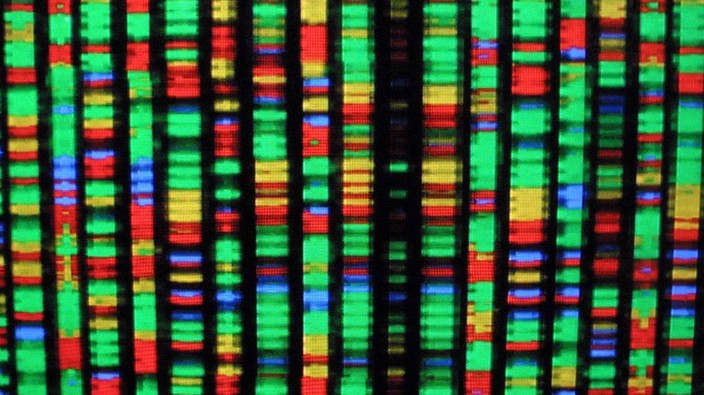genetics a poor indicator of health
but there are exceptions, including crohn’s disease, which has a genetic contribution of approximately 40 to 50 per cent.

a digital representation of the human genome on aug. 15, 2001 at the american museum of natural history in new york city. each color represents one the four chemical compenents of dna.
mario tama
/
getty images
it’s fallacy to believe your dna is a good predictor of your health, say university of alberta scientists who examined two decades of data.the vast majority of diseases, including many cancers, diabetes, and alzheimer’s, have a genetic contribution of just five to 10 per cent, shows the meta-analysis of data from studies that examine relationships between common gene mutations, or single nucleotide polymorphisms (snps), and different conditions.“simply put, dna is not your destiny, and snps are duds for disease prediction,” said study co-author david wishart, professor in the department of biological sciences and the department of computing science.but there are exceptions, including crohn’s disease, celiac disease, and macular degeneration, which have a genetic contribution of approximately 40 to 50 per cent.“despite these rare exceptions, it is becoming increasingly clear that the risks for getting most diseases arise from your metabolism, your environment, your lifestyle, or your exposure to various kinds of nutrients, chemicals, bacteria, or viruses,” said wishart.measuring metabolites, chemicals, proteins, or the microbiome provides a much more accurate measure of human disease risk, conclude the researchers.“the bottom line is that if you want to have an accurate measure of your health, your propensity for disease or what you can do about it, it’s better to measure your metabolites, your microbes or your proteins — not your genes,” said wishart.“this research also highlights the need to understand our environment and the safety or quality of our food, air, and water.”the study, “assessing the performance of genome-wide association studies for predicting disease risk,” has been published in plos one.
 1 minute read
1 minute read





